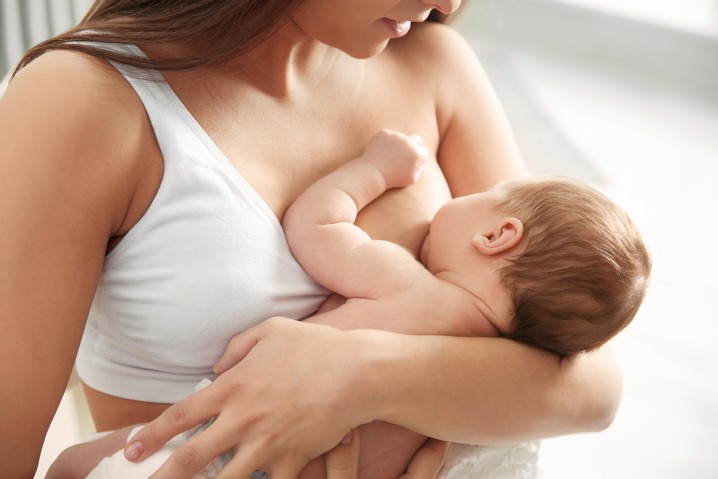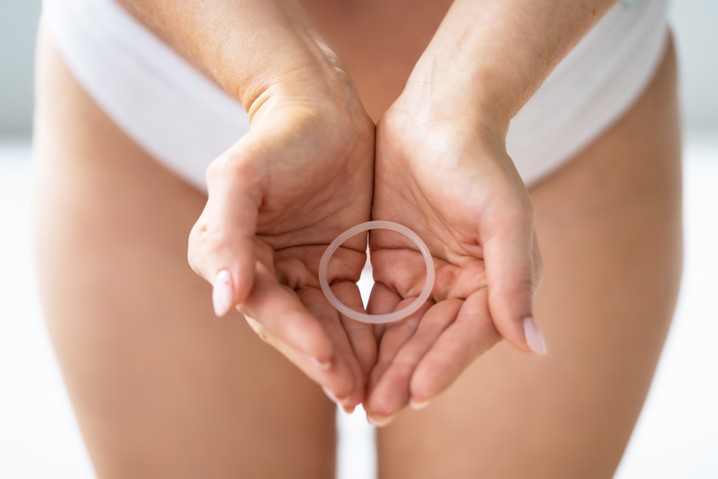

An intimate problem that more than 50% of menopausal women suffer from, and it can occur at any age
Vaginal dryness can negatively affect quality of life. It can cause pain when standing, sitting, physical activity and sexual intercourse.
Vaginal dryness or vaginal dryness is an intimate problem that affects a large number of women. It is about insufficient moisture of the inner and outer intimate area, specifically the vagina and vulva.
Vaginal dryness can occur in women of all ages. About 17% of women between the ages of 18 and 50 have experienced problems with insufficient moisture during sexual intercourse.
Given that this condition is associated with changes in the production of female sex hormones, most notably estrogen, the frequency of vaginal dryness increases with age.
More than 50% of women between the ages of 51 and 60 suffer from vaginal dryness.
Vaginal dryness can negatively affect quality of life. It can cause pain when standing, sitting, physical activity and sexual intercourse.
Under normal circumstances, the lining of the vagina is lined with a layer of fluid that maintains a physiological degree of moisture and acidity and helps it remain elastic.
The drop in estrogen levels, which naturally occurs during aging and entering menopause, causes thinning of the vaginal mucosa and a decrease in mucosal lubrication.
This results in symptoms of vaginal dryness, discomfort, and pain. Over time, this condition can lead to the development of other associated diseases.
Vaginal dryness is a significant health problem, especially for sexually active women.
It reduces the quality of life and can negatively affect a woman’s mental health and lead to a lack of self-confidence, so it is necessary to have an examination by a gynecologist at the first signs to determine the cause of this condition.
Vaginal dryness is usually most pronounced when having sex. During penetration, there is extreme discomfort and pain due to a decrease in humidity.
The main cause of vaginal dryness is a decrease in estrogen levels. With aging, the natural production of estrogen in the body decreases, and in the period immediately before menopause, as well as in menopause itself, there is a change in hormonal balance.
Due to the drop in estrogen levels, the lining of the vagina becomes thinner and less elastic, which can cause vaginal dryness.
In addition to the above, vaginal dryness can also be caused by some concomitant diseases, medical conditions or therapeutic procedures.
Menopause is a natural period in every woman’s life that usually occurs between the ages of 45 and 55. This period is characterized by hormonal changes and the absence of menstruation.
In addition to hot flashes, vaginal dryness is one of the most common symptoms in the menopausal period.
In menopause, a woman’s body loses its reproductive capacity, the ovaries no longer produce eggs and the secretion of the female sex hormone – estrogen – is significantly reduced.
Due to the gradual decline in the levels of estrogen, which regulates the thickness and moisture of the vaginal mucosa, there is thinning of tissues, increased sensitivity and susceptibility to infections.
Symptoms of tissue atrophy of the intimate area are among the more common symptoms, and can develop a few months after menopause to a maximum of 3 to 5 years after the cessation of menstruation.
The vaginal tissue thins, and the blood supply to the vagina decreases. The mucous membrane becomes pale and dry, which leads to pain during sexual intercourse, vaginal itching, burning and burning.
The same changes can occur in women who have had their ovaries removed surgically or in women who have undergone chemotherapy.
Vaginal dryness and the accompanying symptoms of menopause are silent problems that few women are willing to talk about. These symptoms can be successfully treated with medical procedures, therapy and the adoption of appropriate lifestyle habits in the new period.
When the first symptoms of menopause appear, it is important to perform an examination and consultation with a gynecologist in order to obtain information about possible therapeutic procedures that will facilitate this stage of life.
During pregnancy and immediately after childbirth, the body undergoes dramatic changes, especially when it comes to hormonal balance.

Vaginal dryness and discomfort after pregnancy is a common and natural condition that is rarely talked about.
According to one 2018 study, 43% of women experienced vaginal dryness in the 6 months after giving birth.
The cause of vaginal dryness in the postpartum period is the fluctuation of the hormones estrogen and progesterone. Estrogen levels decrease during breastfeeding, so estrogen deficiency causes many symptoms such as hot flashes, night sweats and vaginal dryness.
The effect of breastfeeding on vaginal dryness is transient and the condition usually improves as milk production decreases and the frequency of breastfeeding decreases.
Oral contraception is one of the most commonly used methods of family planning. It allows partners to enjoy sexual activities without worrying about unwanted pregnancy.
Hormonal contraception has many advantages, but like any use of pharmacotherapy, it brings with it certain side effects.
One of the possible side effects of using hormonal contraception is vaginal dryness.
Hormonal contraceptives contain estrogen or progestin (synthetic progesterone), which can affect estrogen levels in the body.
Estrogen is crucial in maintaining the tone and moisture of the vaginal tissue, and reducing the levels of this hormone causes dryness of the mucous membranes.
These side effects can also occur with the use of intrauterine contraceptive methods, popularly called spirals. The IUDs also contain these hormones and can lead to similar side effects, including vaginal dryness.
The diagnosis of vaginal dryness is made on the basis of a gynecological examination, and if necessary, additional tests. Since the lack of lubrication causes noticeable discomfort, it can be noticed during a physical examination of the external and internal genitalia.
To find out the cause of vaginal dryness, our doctor will ask you about the symptoms and medications you are taking.
They will also, depending on your medical history and general health, refer you to an analysis of hormones in the blood or a swab for possible infectious agents.
Therapeutic methods for the treatment of vaginal dryness are selected according to the diagnosed cause. If vaginal dryness occurs before menopause, it is usually a transient condition that normalizes with the return of hormonal balance.
In these cases, vaginal dryness can be facilitated and prevented by adopting habits such as:
In other cases, such as menopause, vaginal dryness is treated with hormone replacement therapy or the use of estrogen preparations.
Estrogen creams or tablets can be used topically. They are applied to the vaginal area several times a week.
One of the hormone therapies are vaginal rings that the patient applies independently. Their advantage is that they slowly release low doses of estrogen over several months.

Creams, pills and rings usually have lower doses of estrogen than hormone replacement therapy and carry fewer risks.
Before choosing a therapy, it is definitely advisable to consult a gynecologist in order to be informed about all the advantages and disadvantages of individual therapeutic options and to choose the best one for you.
The Gynecology Clinic of the Lohuis Filipović Polyclinic provides medical care using the most modern methods of diagnosis and treatment of women’s intimate health.
We especially nurture collaborative and teamwork that unites experience, knowledge and cutting-edge technology to respond to the specific needs of each patient.
Our goal is successful diagnosis, treatment, patient monitoring, and positive and long-term results.
Our multidisciplinary team brings together renowned experts with many years of experience in scientific and practical work.
The main goal of LF Polyclinic is to improve the quality of life and health of our clients by providing them with top-notch healthcare services.